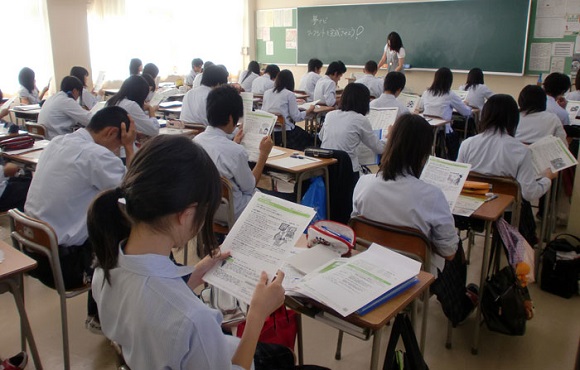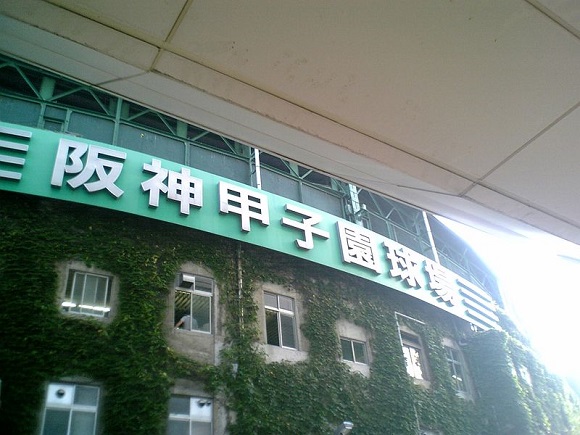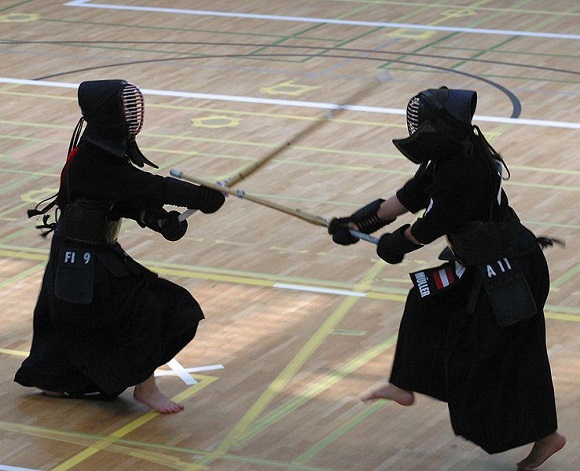
Japan has a reputation for overworking its employees, though it’s hardly the only country! But when it comes to education, you’d expect Japanese teachers, whose students often score among the top in the world on standardized tests, to be solely focused on their classroom materials. But you might be wrong!
One public middle school teacher has recently gotten a ton of attention online for a blog post about her impossible-to-manage duties as a “club leader” and her desire to actually change occupations due to the intense schedule. Read about her experience and the intense reactions below.
The teacher, who goes by the pseudonym Mayuko, has dedicated her entire blog, titled “The public junior high school after-school club advisory system is definitely illegal!!”, to things she finds wrong or absurd about Japan’s “advisory system.” The advisory system is basically the way that Japanese schools take care of oversight of after-school clubs, ranging from sports to cultural activities like tea ceremony or English.
▼No minced words to be found here!
Now, obviously Mayuko is strongly against the current system, so we wouldn’t recommend taking her views without a few grains of salt–but anyone who has worked in a public school in Japan can tell you that the teachers tend to be overworked and underpaid.
In her post, titled “I’m going to quit being a junior high school teacher,” Mayuko begins by explaining that she’s been a teacher for six years. Apparently, the entire time she’s been thinking about issues related to the after-school programs and how it affects her life and the lives of other teachers.
For example, she points out that even though, Monday through Friday, she’s working hard–including lengthy overtime preparing for class and helping her club members–she still has to come in on the weekend for more work. Obviously, she has no time to take a moment to relax or run errands.
However, this isn’t just a matter of the teacher being overworked. It seems that the after-school clubs and advisory system is also negatively affecting her ability to teach. Mayuko writes, “I can’t do lesson research on the weekend, but for classes on Mondays, I still have to keep things going. I’m always thinking up lessons on the spot.”
▼Koshien Stadium, where national high school baseball tournaments are held
Imagine how many hours of unpaid overtime the coaches worked!
The middle school teacher also explains the psychological toll her job is taking, saying that since she’s always in front of the student’s she’s always in teacher mode. And once a teacher becomes an adviser for a club, it becomes an obligation and that teacher is always in contact with parents as the “club teacher.” Even worse is that she says she has no one to consult with, like an elder teacher or someone in a management role
Finally, Mayuko explains that she plans to quit teaching junior high school in one year and then move to another prefecture to become an elementary school teacher. “What I want to do is teach children. But I cannot accept the current after-school club advisory system for middle schools,” the frustrated teacher writes.
▼”Pssst! I think the teacher’s making this up as she goes.” “Oh, yeah? Me, too!”
Now, obviously, there are a lot of people with a wide variety of strong reactions to Mayuko’s post! Here’s a sample of what we found both on her blog and elsewhere on the web.
First, a ton of other teachers commented on Mayuko’s blog, showing support for the beleaguered educator. Many of them seemed to completely agree with her and shared her misery. One teacher posted anonymously, saying that the time spent on after-school activities got in the way of her marriage.
Another poster pointed out that teachers are also expected to do all of this overtime work without overtime pay. Mayuko responded to the comment adding that they’re forced to work overtime without getting paid because it’s “for the children.”
One health and physical education teacher added her support, saying that every single thing Mayuko had written left the teacher nodding in agreement. The physical education teacher explained, saying, “I didn’t become a teacher for the after-school clubs, but get kids to exercise and have fun in class…to help them deepen their understanding of health.”
▼Kendo is one of the biggest after-school clubs in Japan.
We imagine teachers probably like it for the chance to hit students with big sticks.
On the other hand, a lot of commenters seemed almost angry with Mayuko. For example, someone posting under the name Maaku wrote:
To be blunt, you’re not suited to being a school teacher. I feel bad for your students. You shouldn’t wait until next year to quit your job. Being able to handle both classes and after-school clubs–that’s just natural in this world. Saying you can’t handle your classes because of the clubs is nothing more than an excuse.
And you want to change to an elementary school since they don’t have any after-school clubs? Recently, elementary schools have started having clubs too. And the work is really difficult. Since the teachers don’t have a specialization, the preparation for classes isn’t even comparable to middle school. If you just want to teach, go work at a prep school. I feel bad for your kids, your students.
Another poster, calling him- or herself “elementary school” simply wrote:
Don’t make light of elementary schools!
The blog post has taken on a life of its own, getting attention around the web. Rakuten’s Social News site, which lets users vote on whether or not they agree with certain topics, even took up the issue. Though voting hasn’t closed yet, the comments also showed a diversity of opinions.
▼Here, you can see a teacher in a rare moment of teaching instead of coaching.
One user, going by the name YUHYUH, wrote the following:
I think teachers with no motivation are just poison for society. If you put a rotten mikan orange in a box of mikan oranges, it’ll make them all go bad, and if she were just a regular office employee it’d be bad enough, but all the dozens of students that are taught by her might also have their futures ruined. I wouldn’t want someone like that taking up the teacher’s cane. To leave someone like her in charge of elementary school students…? I would have nothing but eternal doubts.
In response to YUHYUH, another user, going by the name Aomidori Yasa, wrote:
Even so, normalizing overtime work (overtime work that teachers don’t get paid for…apparently) is the problem. I want the teachers to work on improving their relationships and discussing with each other and the students how to improve the system. But, well, if you think about what this teacher is looking for, it seems like a prep school or cram school would be better for her. I think she’d be better off looking for that kind of job than trying to get a job teaching in an elementary school.
Now, this is obviously just a very small sampling of all the reactions to Mayuko’s blog post. We’re sure that there are some teachers in Japan who would agree with Mayuko–and probably plenty who would disagree as well.
▼Pictured are some of the teachers who disagree with Mayuko.
We know that many of our readers have experience with after-school programs in Japanese schools–either as ALTs or as parents of students attending the schools. If you’re one of them, be sure to share your thoughts! And even if you’ve never been to Japan, we imagine that this is an issue that teachers from many countries can relate to, unfortunately. We’d love to hear what our very smart and great-smelling readers have to say about this topic. So be sure to chime in below!
And don’t worry; you won’t be graded on your responses…but we can’t promise there won’t be a pop quiz later!
Sources: Bukatsu1234 (Mayuko’s blog), Rakuten Social News
Images: Wikipedia (1, 2, 3, 4, ), Bukatsu1234






 Teacher says Japanese schools’ mandatory extracurricular activity rules don’t benefit students
Teacher says Japanese schools’ mandatory extracurricular activity rules don’t benefit students Japanese teacher simply asks to be treated like a human being
Japanese teacher simply asks to be treated like a human being “Peaceful life with many dogs” is unacceptable dream, Japanese high school teacher tells student
“Peaceful life with many dogs” is unacceptable dream, Japanese high school teacher tells student Japanese teacher criticized for attending son’s entrance ceremony instead of her own school’s
Japanese teacher criticized for attending son’s entrance ceremony instead of her own school’s Educator offers advice for Japanese schoolgirls who get asked out by their teachers
Educator offers advice for Japanese schoolgirls who get asked out by their teachers Foreigner’s request for help in Tokyo makes us sad for the state of society
Foreigner’s request for help in Tokyo makes us sad for the state of society Bad tourist manners at Mt Fuji Lawson photo spot prompts Japanese town to block view with screens
Bad tourist manners at Mt Fuji Lawson photo spot prompts Japanese town to block view with screens One of Japan’s oldest castles now lets travelers spend night on the grounds, drink in its keep
One of Japan’s oldest castles now lets travelers spend night on the grounds, drink in its keep McDonald’s Japan’s new pancake pie is a taste sensation
McDonald’s Japan’s new pancake pie is a taste sensation Studio Ghibli unveils massive T-shirt collection featuring top anime movie characters
Studio Ghibli unveils massive T-shirt collection featuring top anime movie characters Two things to do, and two things not to do, when leaving a traditional Japanese inn
Two things to do, and two things not to do, when leaving a traditional Japanese inn FUK COFFEE?!? Japanese cafe has a perfectly innocent reason for its startling-looking name
FUK COFFEE?!? Japanese cafe has a perfectly innocent reason for its startling-looking name Mister Donut’s new Kyoto roasted green tea donut is a mess…in the best possible way
Mister Donut’s new Kyoto roasted green tea donut is a mess…in the best possible way All-you-can-drink Starbucks and amazing views part of Tokyo’s new 170 meter-high sky lounge
All-you-can-drink Starbucks and amazing views part of Tokyo’s new 170 meter-high sky lounge Bear attacks car in Japan, breaks windshield with its paw【Video】
Bear attacks car in Japan, breaks windshield with its paw【Video】 Japanese ramen restaurants under pressure from new yen banknotes
Japanese ramen restaurants under pressure from new yen banknotes Red light district sushi restaurant in Tokyo shows us just how wrong we were about it
Red light district sushi restaurant in Tokyo shows us just how wrong we were about it McDonald’s new Happy Meals offer up cute and practical Sanrio lifestyle goods
McDonald’s new Happy Meals offer up cute and practical Sanrio lifestyle goods Tokyo Tsukiji fish market site to be redeveloped with 50,000-seat stadium, hotel, shopping center
Tokyo Tsukiji fish market site to be redeveloped with 50,000-seat stadium, hotel, shopping center Japanese city loses residents’ personal data, which was on paper being transported on a windy day
Japanese city loses residents’ personal data, which was on paper being transported on a windy day Beautiful Red and Blue Star luxury trains set to be Japan’s new Hokkaido travel stars
Beautiful Red and Blue Star luxury trains set to be Japan’s new Hokkaido travel stars Ghibli Park now selling “Grilled Frogs” from food cart in Valley of Witches
Ghibli Park now selling “Grilled Frogs” from food cart in Valley of Witches New definition of “Japanese whiskey” goes into effect to prevent fakes from fooling overseas buyers
New definition of “Japanese whiskey” goes into effect to prevent fakes from fooling overseas buyers Our Japanese reporter visits Costco in the U.S., finds super American and very Japanese things
Our Japanese reporter visits Costco in the U.S., finds super American and very Japanese things More foreign tourists than ever before in history visited Japan last month
More foreign tourists than ever before in history visited Japan last month New Pokémon cakes let you eat your way through Pikachu and all the Eevee evolutions
New Pokémon cakes let you eat your way through Pikachu and all the Eevee evolutions Disney princesses get official manga makeovers for Manga Princess Cafe opening in Tokyo
Disney princesses get official manga makeovers for Manga Princess Cafe opening in Tokyo We try out “Chan Ramen”, an underground type of ramen popular in the ramen community
We try out “Chan Ramen”, an underground type of ramen popular in the ramen community Sales of Japan’s most convenient train ticket/shopping payment cards suspended indefinitely
Sales of Japan’s most convenient train ticket/shopping payment cards suspended indefinitely Sold-out Studio Ghibli desktop humidifiers are back so Totoro can help you through the dry season
Sold-out Studio Ghibli desktop humidifiers are back so Totoro can help you through the dry season Japanese government to make first change to romanization spelling rules since the 1950s
Japanese government to make first change to romanization spelling rules since the 1950s Ghibli founders Toshio Suzuki and Hayao Miyazaki contribute to Japanese whisky Totoro label design
Ghibli founders Toshio Suzuki and Hayao Miyazaki contribute to Japanese whisky Totoro label design Doraemon found buried at sea as scene from 1993 anime becomes real life【Photos】
Doraemon found buried at sea as scene from 1993 anime becomes real life【Photos】 Tokyo’s most famous Starbucks is closed
Tokyo’s most famous Starbucks is closed One Piece characters’ nationalities revealed, but fans have mixed opinions
One Piece characters’ nationalities revealed, but fans have mixed opinions We asked a Uniqlo employee what four things we should buy and their suggestions didn’t disappoint
We asked a Uniqlo employee what four things we should buy and their suggestions didn’t disappoint Under 35 percent of middle school English teachers in Japan meet government proficiency benchmark
Under 35 percent of middle school English teachers in Japan meet government proficiency benchmark “We wasted so much time in English class” — Japanese Twitter user points out major teaching flaw
“We wasted so much time in English class” — Japanese Twitter user points out major teaching flaw Japanese teacher beats up student for making fun of his body by calling him anime character name
Japanese teacher beats up student for making fun of his body by calling him anime character name Don’t like trigonometry? Then you’re just like Hitler, says Japanese high school English teacher
Don’t like trigonometry? Then you’re just like Hitler, says Japanese high school English teacher Crushing workload at schools is causing more Japanese teachers to crumble from chronic depression
Crushing workload at schools is causing more Japanese teachers to crumble from chronic depression Teacher disciplined for drinking alcohol during class in Japan
Teacher disciplined for drinking alcohol during class in Japan Japanese middle school teacher kisses her student at Tokyo Disneyland during date, gets fired
Japanese middle school teacher kisses her student at Tokyo Disneyland during date, gets fired American English teacher fired from Japanese high school after exposing genitals
American English teacher fired from Japanese high school after exposing genitals When bullying happens in Japan, should parents go to the police? We ask an educator
When bullying happens in Japan, should parents go to the police? We ask an educator Foreign English teacher in Japan calls student’s ability garbage, says it was an “American joke”
Foreign English teacher in Japan calls student’s ability garbage, says it was an “American joke” Japanese elementary school teacher under fire after selling students’ personal info online
Japanese elementary school teacher under fire after selling students’ personal info online Naturally brown-haired Osaka student sues government for forcing her to dye her hair black
Naturally brown-haired Osaka student sues government for forcing her to dye her hair black What’s wrong with English education in Japan? Pull up a chair…
What’s wrong with English education in Japan? Pull up a chair… Japanese high school teachers forcibly cut off hair that was “too long” from 44 students
Japanese high school teachers forcibly cut off hair that was “too long” from 44 students
Leave a Reply